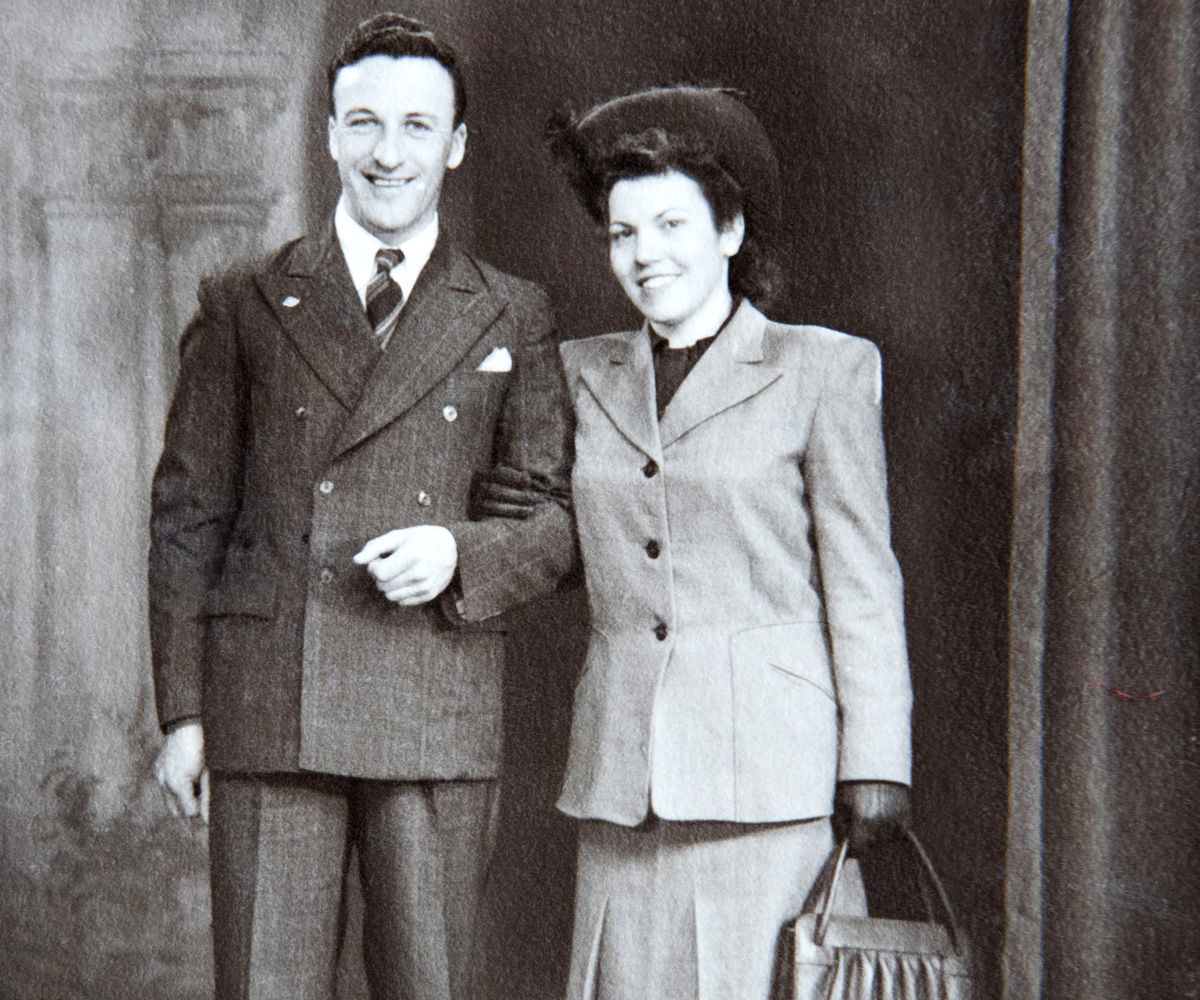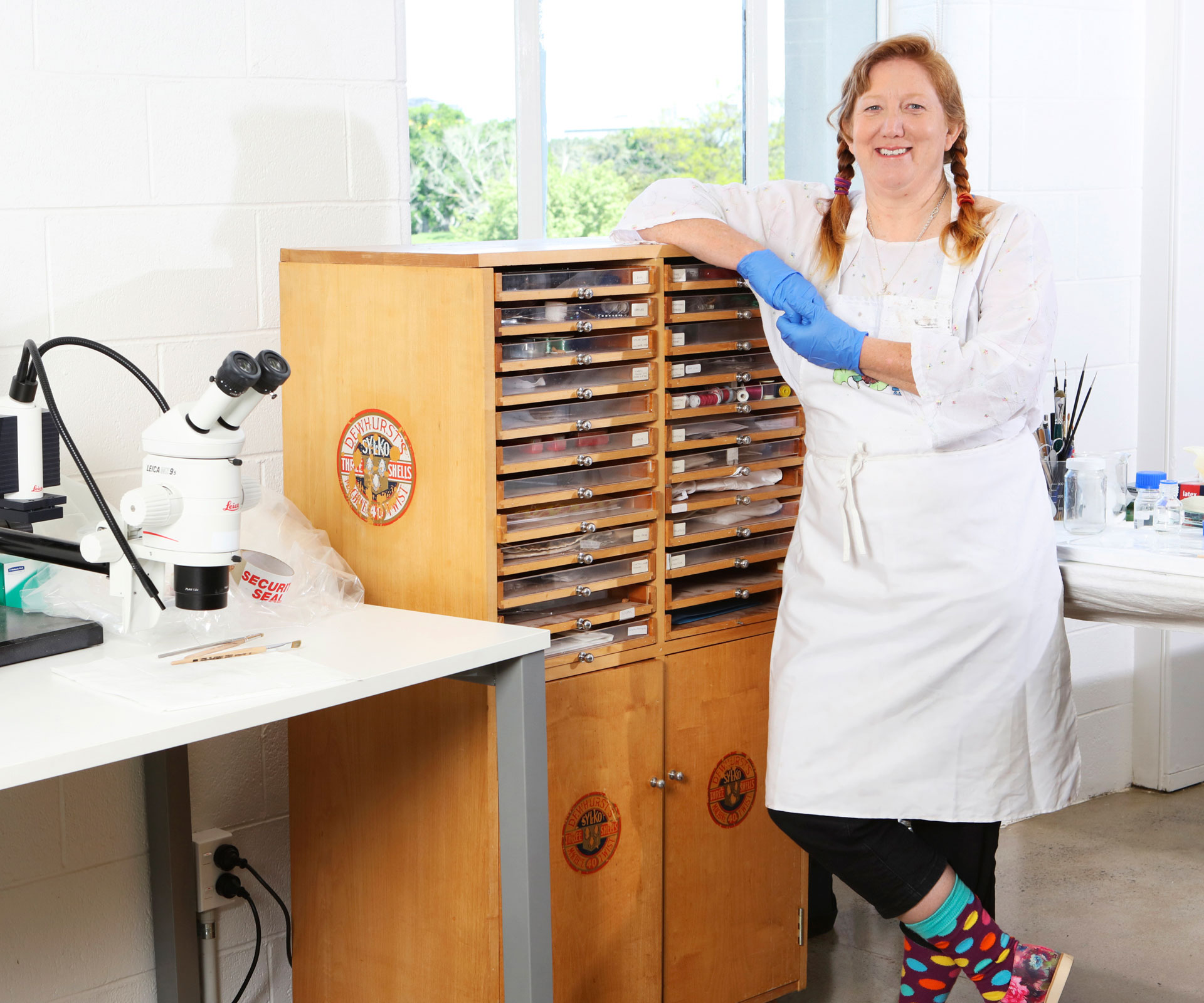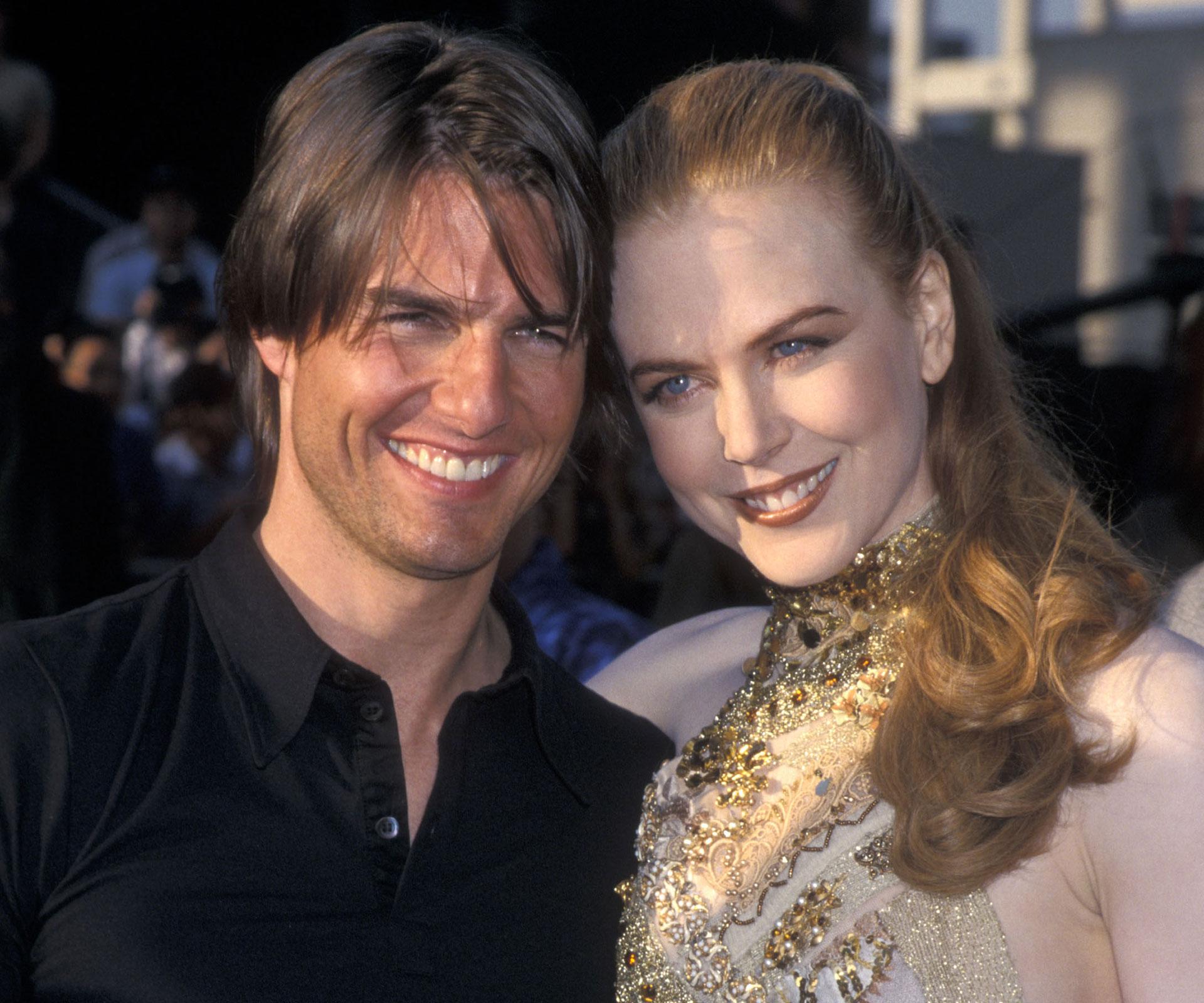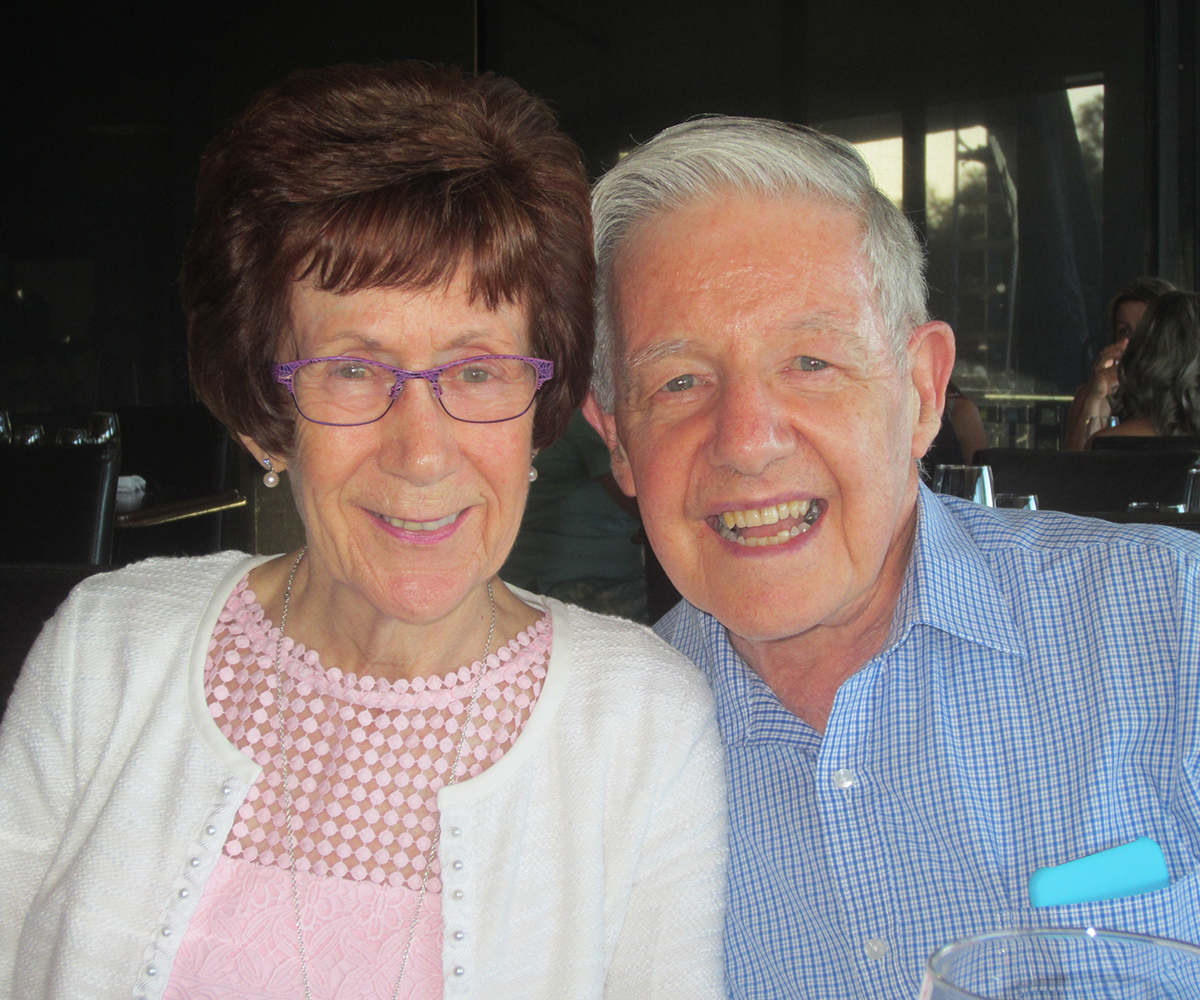As far as places go for a love story to start, the snow-laden, barbed wire-rimmed grounds of a World War II prisoner-of-war camp are about as far removed from romance as you could imagine.
But it was there, on the outskirts of Maribor, Slovenia, that love bloomed against the odds for Josefine Lobnik – a partisan fighter – and Bruce Murray, a Kiwi prisoner of war.
Neither of them was supposed to be there. Bruce had been captured in Greece, before being transferred to the POW camp. And Josefine was there trying to track down her beloved brother, who had been captured by the Nazis.
Their first interaction was just seconds long. Josefine, risking death if caught by the Nazi soldiers guarding the perimeter of the camp, was attempting to slip a note asking about her brother through the barbed wire fence.
On the other side of the fence, Bruce also risked his life by accepting this note from a stranger.
The exchange made a lasting impact on both of them, and was the start of a romance that would survive against the horrors of World War II.

As soon as he heard the incredible story of Anemarie’s parents Doug knew it had to be recorded.
Forty years later, around a family dinner table, Doug Gold first heard the story of how Josefine and Bruce fell in love.
It was in the mid 1980s, and Doug had been brought home to meet the parents of the girl he was dating (and later married), his radio colleague Anemarie – Bruce and Josefine’s daughter.
“The conversation drifted towards this story of how they met. I was fascinated, and the more I learned about it, the more I realised it was a story that needed to be told,” Doug says.
“I had no thoughts of telling it myself at that point, but I really thought it needed to be published because it was one of those unreported World War II love stories.”
Writing is not Doug’s day job – he is a long-time media entrepreneur who, amongst many achievements, set up the More FM radio network. But he knew he had an important story on his hands.
Even so, The Note Through the Wire was a long time coming, which is fitting, because the journey that brought Josefine and Bruce together was also a long, winding one, spanning many years and many continents.
For Anemarie, the origins of her parents’ love story had been a source of great fascination to her ever since she was a child.
“I was quite young, about eight, when I started questioning how they met,” she recalls.
“Mum had an accent, completely different to anyone that we knew and completely different to Dad. They also used to speak German all the time at home, whenever they didn’t want the kids to understand!”
Slowly the story started to come out.
In 1942, Bruce, then 25 and originally from Wellington, had been captured at Corinth, in Greece, and begun the perilous journey across Europe with his fellow POWs.
The conditions were horrifying, including a five-day train trip, during which he and his fellow soldiers were encased in carriages meant for cattle, before ending up at Stalag XVIII-D, a prisoner-of-war camp on the outskirts of Maribor in Slovenia.
It was here where his WWII timeline intersected with that of 18-year-old Josefine, a partisan fighter against the Nazi occupation of her country who was desperately trying to track down her missing brother, and believed he might be held in the Slavic section of the same concentration camp.
One Sunday, dressed as an old woman, Josefine squirrelled herself through the forest surrounding the compound, with a note requesting information on her brother.
The bewildered recipient of the note was Bruce, who then waited in vain every other Sunday for her to return.
He didn’t see her again until 1943 when, in a “you couldn’t make it up” twist, both Josefine and Bruce ended up on the same farm in Austria; Bruce there on a POW consignment, and Josefine because she had been placed on a Nazi death list due to her resistance work and had gone to stay on her cousin’s farm.
Slowly – with great enthusiasm on Bruce’s part, and initial suspicion on Josefine’s – the pair fell in love.
The story, Doug and Anemarie say, has become something of folklore in both the Kiwi and Slovenian sides of the family.
It was also one of the only parts of the war Bruce and Josefine would discuss.
“They were both very modest and, like a lot of World War II veterans, very reluctant to talk about it,” Doug says of his parents-in-law.

A selection of Josefine’s family photos show her father (top left, in centre) with several of her siblings; her sister Anica (top right); her brother Roman (bottom right), Josefine herself in 1942 (bottom centre) and (centre) Leopold, the brother she was trying to find when she met Bruce.
In the far left photographs Bruce is standing at back left with other prisoners of war in the bottom left pic, and at centre back in a group of men assigned to farm work during the war.
It was partly when grandchildren came along that Josefine began discussing her years in the war.
“It sounded horrendous, but she would try and make it entertaining for them,” Anemarie says.
But it was really the relationship between Doug and Bruce that saw more details come out.
“Dad opened up to Doug more than he did to anyone else, at the RSA over an occasional beer,” Anemarie says.
“He felt he was the only one he could talk to about it; but he used to burst into tears and start crying about his experiences in the war, especially as a POW. It was hard, because they really didn’t want to talk about it.”
It was only in 1998 that Doug finally managed to convince his mother-in-law to tell her story.
At that stage Josefine was a widow; Bruce had died five years earlier at 77.
Doug and Anemarie were living in France at the time, and Josefine and her sister Mitzi, then in their 70s, had flown back to Slovenia to visit family.
The plan was for Josefine to then come to France, sit down with Doug, and let him interview her and record the conversation, to later turn it into a book.
And then it all fell apart.
Three days before Josefine was due to talk with Doug, she and her sister were hit by a driver who was on the wrong side of the road.
Mitzi was killed instantly, and Josefine died two weeks later.
The tragic irony that, after moving to Wellington for much of her life, Josefine should be killed in the country both she and her siblings fought so bravely to protect, was not lost on her family – and neither was the fact that the only person who knew the details of this family legend was now gone.

The Note Through the Wire, by Doug Gold, Allen and Unwin, is available in stores now
The love story of Bruce and Josefine lay dormant for almost two decades before the work started up again, in the attempt to create a record for the family.
“I never wrote it with publication in mind,” Doug says.
“I wrote it because Josefine and Bruce’s great-grandchildren knew nothing about it; even their grandchildren didn’t know the full story. I suddenly realised that if it wasn’t recorded now, there was a good chance nobody would know what their grandparents went through in the war.”
Once he started researching, Doug realised it was never going to be just the 50 to 100-page document he had assumed it would be.
It was a story that needed to be told properly, fully.
Tracking down the movements of two people, 75 years ago, across several different countries, with a minimum of three different languages, during a war… well, it was a journey.
They started with Bruce’s military records, which were the most useful, concrete resources; giving them the dates he was at various POW camps, the fact that he had fought with the Russians on the Austro-Hungarian border in the final gasps of the war, as many Allied soldiers had done.
They also tracked his route through Europe as he tried to make his way back to Josefine in Slovenia after the war had finished.
In a lot of WWII movies, the end of the war is portrayed as a heroic time when all the countries come together in celebration.
So you could assume that a soldier for the winning side might have no issue reuniting with his heroine love.
Well, the reality the book tells is that the red tape surrounding this attempted reunion was more like a game of snakes and ladders played across the world map:
Bruce would hitchhike his way towards Slovenia and get achingly close, only to be denied entry and bundled thousands of miles away again.

Bruce and Josefine, Anemarie’s parents, on their wedding day on December 27, 1947.
On Josefine’s side, the history was much harder to pin down.
Although the partisan movement did keep records of what their fighters had done, they were less accurate and harder to get hold of than the New Zealand military records.
It became more a job of piecing together what she had told different family members; anything official was harder to come by.
But they did know she was a heroine and like many in the partisan movement, had been just a teenager at the time.
There was, however, one document that they could track down.
Josefine was given an official citation from the British government for her “help given to the sailors, soldiers and airmen of the British Commonwealth of Nations, which enabled them to escape from or evade capture by the enemy”.
Between this and the occasional story she had told, the family knew she had spent much of the war helping rescue Allied soldiers who had escaped and that she had ended up on a Nazi death list because she was so successful at it.
“She was a hero,” Doug says simply.
“She was fighting for the same cause and undertaking a lot more perilous missions than most New Zealand soldiers did. And she was a very unassuming person – you wouldn’t find someone more humble than she was about what she had achieved; she used to brush it off.”
And then, of course, there were the letters.
After falling in love and becoming separated during the final years of the war, Bruce and Josefine wrote to each other all the time.
But there was a complication: Josefine’s family didn’t want her moving 12,000 miles away and hid Bruce’s many, many letters from her, in the hopes that she would forget about him.
It didn’t work. Many of the letters included in the book from Josefine to Bruce are of her becoming increasingly desperate.
“Please remember me,” she wrote in one letter. “I’m waiting and as I have said to myself, I will keep on waiting as long as I live.”

Doug’s book has recorded an important part of their family history.
Although it seems cruel, Josefine’s family had good motives; local women around the world were left abandoned by overseas soldiers who promised the world but delivered little.
Bruce’s own beloved younger sister Jo became pregnant to an American soldier who was stationed in Wellington, and died tragically of a backstreet abortion when he left her. As a result, Bruce hated Americans with an unwavering passion for the rest of his life.
“During the Cold War, if anyone ever said anything bad about the Russians, Dad wouldn’t have a bar of it,” Anemarie recalls.
“Dad was so fond of the Russians because they had been so good to him during the war.”
Bruce and Josefine’s life together in New Zealand
It’s very clear, talking to Anemarie and Doug, how much the story of Anemarie’s parents means to them both.
Once the wartime lovers were finally, properly reunited – my advice would be to have tissues on hand for the end of the book – their love story continued as if it had never been interrupted.
Josefine moved to Wellington, where her three children were born (Anemarie is the eldest), and settled into life in New Zealand.
The only language Josefine and Bruce had in common was German – which Bruce had learned as a POW – so that continued to be the language spoken at home while Josefine learned English.
It was lonely for Josefine at first – there was no Slovenian community in Wellington in the 1950s and there was still a lot of fear towards anyone with an accent, so she was treated with great suspicion by the locals.
But slowly the pair built a great community around them, with Russian friends and eventually German friends as well.
“Dad was full of forgiveness for those who had been forced into fighting for Hitler during the war,” Anemarie says.
There was a lot of sadness as well; Bruce’s family never got over the loss of his sister Jo, and Bruce himself never recovered from the deaths of his two best mates, who both died in the same battle that Bruce had missed because he’d been captured.
But they were loving parents, who never forgot how lucky they had been to survive – and how lucky they had been to find each other.
“They were passionately, madly in love their whole lives,” Anemarie says of her parents.
“After Dad suffered a severe stroke and was bedridden, Mum was there with him every day, spoon-feeding him lunch and dinner. She was with him right up until the very end; she looked after him as she knew he would for her.”

Bruce and Josefine in 1982, surrounded by friends at their surprise 35th wedding anniversary party, organised by Anemarie.
The final book was presented to the family on the 20th anniversary of Josefine’s death – a coincidence, but a beautiful one.
“We had the family book launch with everyone there; some of the family hadn’t been together in about 35 years,” Anemarie says.
“It was a joyous occasion but also a very blubbery day – and then when the plum brandy came out… very blubbery!”
The book is sensational – an absolute page-turner, full of love but also the grim realities of what war was like for those on the ground.
It was also very, very hard for Anemarie to read.
“I cried so much; there were times when I couldn’t carry on reading. The horrors of what my parents endured. And I’m ashamed, in a way, because I didn’t really understand what Mum had gone through and how she’d suffered so much. You take your mother for granted in a lot of cases.”
For both Doug and Anemarie, the process of researching The Note Through the Wire was a key example of why it’s so important to talk to any surviving family members about their experiences of the war – or of their lives – while you can.
“I think of it all the time because there are so many stories that should have been told, but it’s too late in so many cases,” says Anemarie.
Having a record of what her parents went through, and the details of their part in a global war has been invaluable. As is having their romance recorded for all time.
“That was always the basis of the story: the love between them. And despite what they went through, it was love that brought them back together again. It’s extraordinary.”




